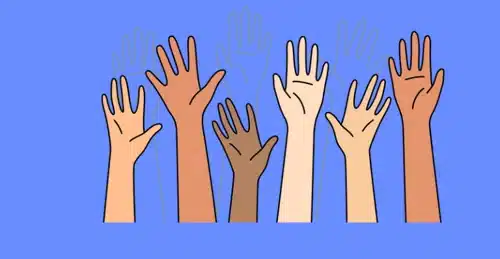We are proud to share news of Just Maps, an inspiring new project that places students and teachers at the heart of community transformation.
This project, a partnership with the GAP International network, is more than a mapping exercise; it’s an attempt to build a movement for meaningful youth participation and action for global justice.
The right to be heard: Children’s participation and climate action
Across Europe and beyond, young people have demonstrated remarkable political strength. Whether organising mass climate strikes or speaking out against inequality, they have made it clear that they want to be heard and to actively shape the local and national policies that affect their lives.
Children’s right to participate in decisions that involve them is enshrined in Article 12 of the United Nations Convention on the Rights of the Child. However, a 2021 European study found that many children feel unheard and undervalued by adults, who often doubt, and can obstruct, their capacity for civic participation.

This is backed up by research from Ireland: 39% of young people feel that they’re not listened to on the topic of climate change.
Children and young people are also unhappy with the kind of climate change education they are receiving – it’s not practical, action-oriented, or localised, and it doesn’t teach the skills they need to meaningfully engage with the issues. Teachers also report feeling unprepared to teach for effective climate action.
The evidence is clear: when children are given the opportunity to participate, they develop stronger confidence, critical thinking and long-term civic engagement tool and skills.
But young people aren’t just adult citizens-in-waiting; as part of our communities, their unique perspectives matter as much as anyone else’s. Policy-makers recognise that embedding youth voice in decisions makes for stronger and more equitable communities, education and services.
Just Maps rises to meet these challenges.
Just Maps empowers teachers and students to explore their own neighbourhoods as active citizens.
Through mapping their local areas, they will identify things their community is doing to support climate action, and research local issues around the environment, social justice, inequality and history. The digital maps they create will become tools for reflection and action, shared with other students in Ireland, Spain, Italy, Poland and Kenya.
Education that transforms communities
But the journey doesn’t stop at data collection. Student delegations from each country will come together to form the Transnational Council of Mappers, where they will share insights, connect local issues to global systems, and propose solutions. Their collaboration will culminate in a Transnational Manifesto of Just Cities, expressing their collective vision for equitable and sustainable communities. Returning home, students will work alongside their local communities and lobby decision-makers to implement their ideas.
Central to Just Maps is the role of teachers
Recognising the need for new approaches to climate and citizenship education, the project will offer professional training and resources to support educators as facilitators of action-based learning. By combining the reflective tools developed in the Just Action project with a “head-heart-hands” methodology, teachers will help students move from learning to doing.
